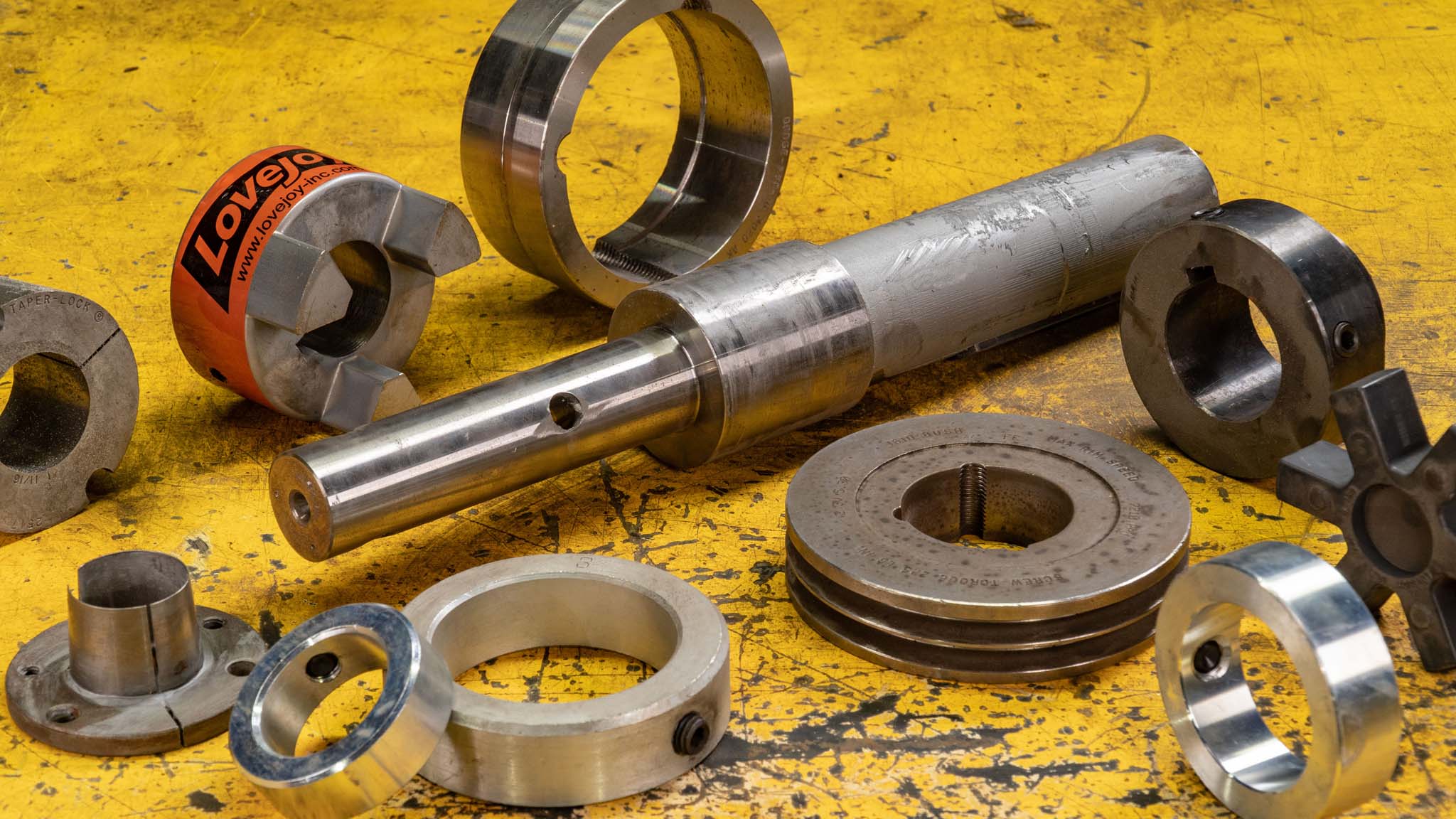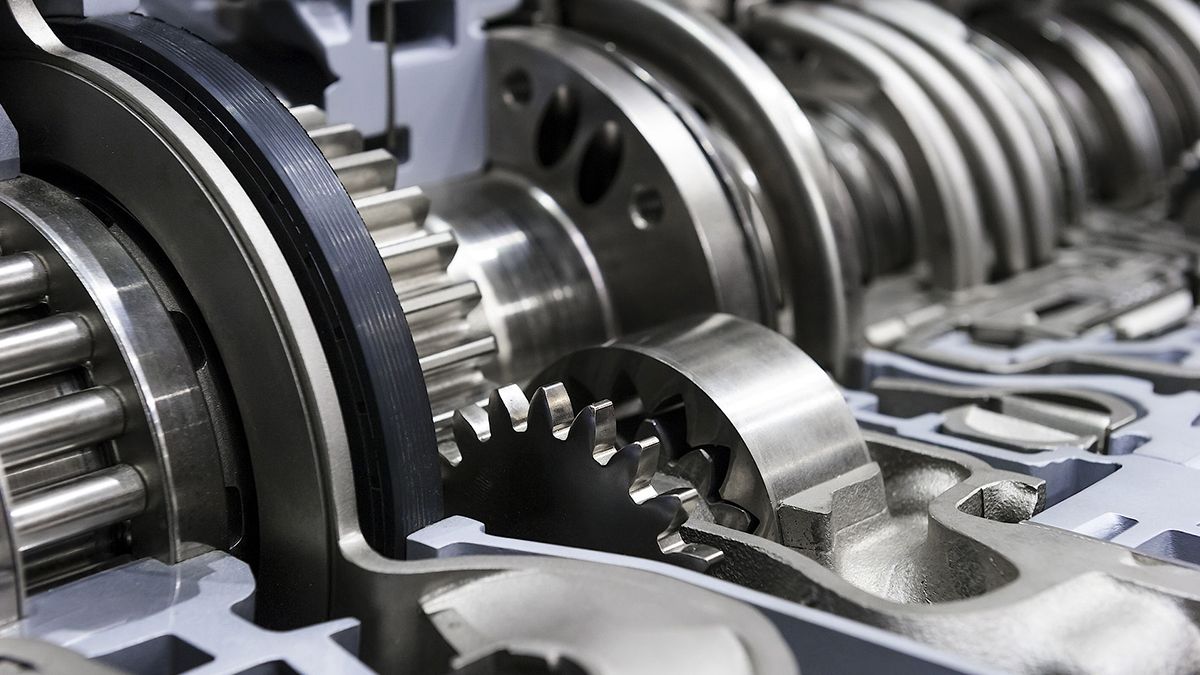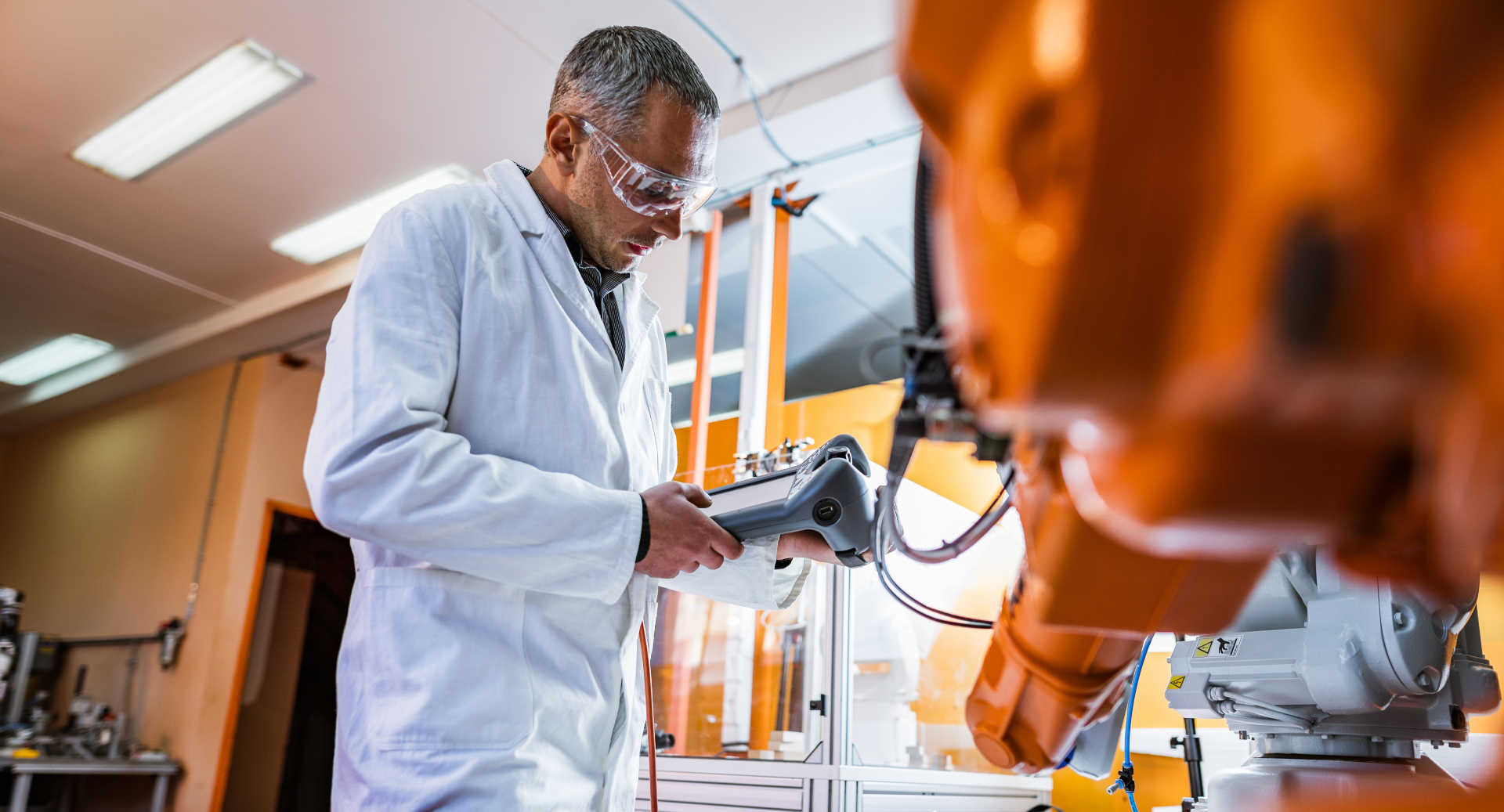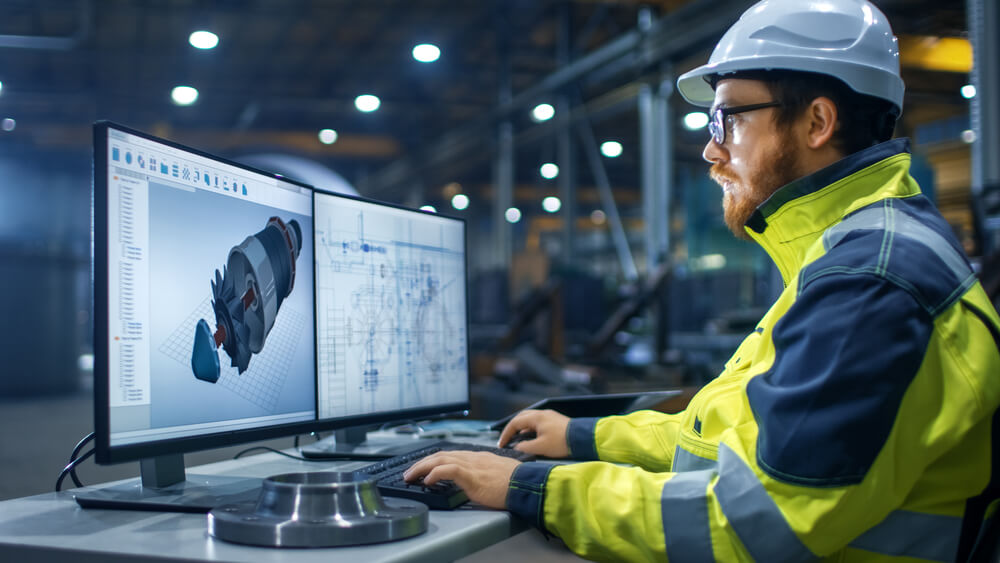
In a world where careerchoices abound, the quest for a fulfilling and secure career path can be both exciting and challenging. It's crucial to navigate the vast sea of options and identify a career that aligns with your passions, offers stability, and promises a fulfilling future. Is industrial machinery/components a good career path? This article delves into the reasons why a career in this field holds immense potential and explores the diverse opportunities it presents.
What Is Industrial Machinery?
Industrial machinery refers to a broad category of equipment, devices, and machines used in manufacturing, production, and various industrial processes. These machines are designed to perform specific tasks, often on a large scale, to enhance efficiency, precision, and productivity in industrial settings.
Industrial machinery can vary greatly in complexity and function, ranging from simple tools like drills and lathes to highly sophisticated automated systems and robotics. Key characteristics of industrial machinery include:
- Specialization -Industrial machinery is purpose-built to perform specific functions within industrial processes. Examples include lathes for machining, conveyor belts for material handling, and injection molding machines for plastics manufacturing.
- Automation -Many industrial machines incorporate automation features, reducing the need for human intervention. This can lead to increased efficiency and consistency in production.
- Versatility -Industrial machinery can serve a wide range of industries and applications. For instance, CNC (Computer Numerical Control) machines can be programmed to produce a variety of parts and products, making them versatile tools for manufacturers.
- Customization -Some industrial machinery is designed for custom or specialized tasks, such as packaging machinery adapted for unique product shapes or sizes.
- Large-Scale Operations -Industrial machinery is often associated with large-scale manufacturing, capable of producing a high volume of products in a relatively short time.
- Technological Advancements -The industrial machinery industry continually evolves with technological innovations, incorporating features like sensors, data analytics, and artificial intelligence to improve efficiency and quality control.
Examples of industrial machinery include milling machines, welding equipment, CNC machining centers, 3D printers, assembly line robots, forklifts, and much more. These machines play a crucial role in various industries, including automotive, aerospace, food production, pharmaceuticals, construction, and many others. Industrial machinery contributes to the growth and advancement of these industries by streamlining production processes, reducing labor costs, and ensuring product quality and consistency.
Examples Of What Industrial Machinery Produces
Industrial machinery plays a pivotal role in the production of a wide range of products across diverse industries. The specific products that industrial machinery can produce are vast and varied. Here are examples of products that are manufactured with the assistance of industrial machinery:
- Automobiles - Industrial machinery in the automotive industry produces cars, trucks, and their components, such as engines, transmissions, and body panels.
- Aerospace Components -Precision machining and industrial machinery are used to create aerospace components like jet engines, aircraft frames, and avionics.
- Consumer Electronics -Industrial machinery is involved in the manufacturing of electronic devices, including smartphones, tablets, and laptops.
- Food and Beverages -Industrial machinery processes and packages food and beverages, creating products like canned goods, bottled drinks, and packaged snacks.
- Pharmaceuticals -Machinery in the pharmaceutical industry produces medications, tablets, capsules, and medical equipment.
- Textiles -Machinery in textile mills creates fabrics, clothing, and other textile products.
- Construction Materials -Industrial machinery is used in the production of construction materials, including concrete blocks, steel beams, and roofing materials.
- Furniture -Industrial machines assist in the manufacture of furniture, from woodworking equipment for chairs and tables to upholstery machinery for sofas and cushions.
- Agricultural Products -Farm machinery like combines and tractors is used to harvest and process agricultural products such as grains and produce.
- Plastics and Packaging -Injection molding machines produce a wide range of plastic products, from toys and containers to packaging materials.
- Medical Equipment -Industrial machinery is vital in the production of medical devices like MRI machines, X-ray equipment, and surgical instruments.
- Metal Products -Industrial machinery, including CNC machines, is used to fabricate a multitude of metal products, such as industrial valves, metal sheeting, and steel structures.
- Chemicals -Machinery is essential for manufacturing various chemical products, from cleaning agents and paints to specialty chemicals used in multiple industries.
- Glass Products -Industrial machinery is employed in producing glass products like windows, bottles, and glassware.
- Paper and Printing -Machinery is used in paper production and the printing of newspapers, books, magazines, and packaging materials.
Components That Help Industrial Machinery To Operate
Industrial machinery relies on a complex array of components to operate efficiently and effectively. These components are often integrated into machinery systems, and each plays a specific role in the functioning of the equipment. Here are some essential components that help industrial machinery operate:
- Power Sources -Industrial machinery typically requires a power source, which can include electrical power, hydraulic power, pneumatic power, or a combination of these. Electric motors, hydraulic pumps, and air compressors are common sources of power.
- Motors and Engines -Electric motors, internal combustion engines, and other types of power sources provide the necessary mechanical energy to move components or perform tasks within the machinery.
- Control Systems -Control systems, which can be manual or automated, manage the operation of industrial machinery. These systems can include switches, knobs, buttons, or more advanced programmable logic controllers (PLCs) for automation.
- Sensors -Sensors are crucial for monitoring various aspects of machinery operation. They provide data on factors like temperature, pressure, speed, position, and load, which help in controlling and optimizing the machine's performance.
- Actuators -Actuators are responsible for translating control signals into mechanical movement. Hydraulic cylinders, pneumatic actuators, and electric servomotors are common examples.
- Bearings -Bearings reduce friction and allow for smooth movement of machine components. These are essential for rotating and linear motion systems.
- Gears and Gearboxes -Gears and gearboxes are used to control speed, torque, and direction of motion within machinery. They help optimize the mechanical advantage of the machine.
- Belts and Pulleys -These components are used to transfer power from one part of the machinery to another. Belt drives and pulley systems are commonly found in many industrial machines.
- Conveyors -Conveyors move materials within a manufacturing process. They are crucial in industries like material handling, food production, and logistics.
- Valves -Valves control the flow of fluids or gases within industrial machinery. They are vital in hydraulic systems, pneumatic systems, and industrial processes.
- Hydraulic Systems -Hydraulic components, including pumps, cylinders, and hoses, are used in heavy machinery, providing precise control and high-force output.
- Pneumatic Systems -Pneumatic components, such as air compressors, valves, and actuators, use compressed air to power machinery, offering rapid response and simplicity in certain applications.
- Electrical Wiring and Cables - Wires and cables connect electrical and electronic components within the machinery, facilitating control and communication.
- Lubrication Systems -Lubrication components like oil pumps and reservoirs are essential for reducing friction and wear in moving parts.
- Cooling Systems -Cooling systems, including radiators and fans, help dissipate heat generated during machinery operation, preventing overheating.
- Safety Components -Safety switches, guards, and interlock systems are integral for protecting operators and ensuring safe machinery operation.
- Control Panels and Human-Machine Interfaces (HMIs) -These components allow operators to monitor and interact with the machinery, providing critical information and control features.
Benefits Of Industrial Machinery/Components As A Career Path
Choosing a career in industrial machinery/components can offer a plethora of benefits for individuals who are inclined toward this field. Whether you are passionate about engineering, technology, or problem-solving, here are some key advantages of pursuing a career in industrial machinery/components:
Diverse Job Options
There are many job opportunities in the industrial machinery and components business, such as design and engineering jobs. Employees can work in a variety of settings when they have different jobs. You could work in an office or out in the field, like on a building site. You could also become an expert in a subject that interests you. You could, for example, work on making and installing solar panels if you're interested in green energy.
Innovative Opportunities
People who work in this field might be able to come up with new tools or parts that will help improve processes and make them more productive. One thing that engineers try to do is make machines that are safer and more accurate. They might work with pros from other fields, like researchers, architects, and designers. So, they learn about different areas and use what they've learned to make better tools for those areas.
Work On Large-scale Projects
In the businessof industrial machinery and parts, there are long, complicated projects that need masters in many fields, like engineering, design, or project management, to finish on time and on budget. These people can help employees learn about other fields and build strong networks that can help them get better job opportunities. On top of that, working on big projects might make you happy at work. One example of a job that might make a mechanical engineer happy is overseeing the production of machinery that helps car companies make their products more efficiently.
Transferable Skills Development
Transferable skills are abilities that you can use in a variety of jobs and work paths. You might learn skills like project management and problem-solving while working with industrial tools and parts that you can then use in jobs outside of the industry. As an example, project managers work with teams, give out tasks, make sure the project stays on track, and handle risks. For some jobs, you have to be able to constantly figure out what's wrong with equipment, find answers and put them into action.
Hands-on Tasks
You might have to do physical work as part of this job path, like fixing broken equipment. If you like doing things by hand, the work can be rewarding. You may also work with different systems or parts, which can make chores more fun and make you happier at work. To do well in these jobs, you need to have a lot of different skills, like being accurate, precise, and skilled with hand tools.
Skills Needed To Succeed In This Career
To succeed in a career in industrial machinery and components, you need a combination of technical, problem-solving, and interpersonal skills. Here's a list of skills that are essential for success in this field:
- Technical Knowledge - A strong foundation in technical skills, including mechanical, electrical, and industrial engineering, is crucial. Understanding the principles of how machinery and components work is essential for troubleshooting and maintenance.
- Problem-Solving -Industrial machinery professionals frequently encounter complex issues. The ability to identify, analyze, and solve problems efficiently is a key skill. This includes diagnosing mechanical and electrical issues, as well as finding creative solutions.
- Safety Awareness -Working with heavy machinery and complex systems demands a strong commitment to safety. You should have a deep understanding of safety protocols and the ability to adhere to them rigorously.
- Mechanical Aptitude -A knack for understanding how machinery and mechanical systems operate is invaluable. This includes familiarity with concepts like hydraulics, pneumatics, and mechanical systems.
- Electrical Skills - Many industrial machines incorporate electrical components. Understanding electrical systems, wiring, and controls is essential for diagnosing and repairing issues.
- Programming and Automation -With the increasing use of automation, knowledge of programming languages and control systems like PLCs (Programmable Logic Controllers) is advantageous. These skills enable you to configure and troubleshoot automated machinery.
- Mathematical Proficiency -Mathematics, especially calculus and algebra, plays a crucial role in calculating the dimensions, tolerances, and performance characteristics of machinery.
- Blueprint Reading -Being able to read and interpret technical drawings and blueprints is essential for understanding how machinery is designed and assembled.
- Communication Skills -Effective communication is essential when working in teams, collaborating with engineers, or explaining complex issues to non-technical personnel. This includes written and verbal communication.
- Analytical Thinking -The ability to analyze data and make data-driven decisions is valuable for optimizing machinery performance and diagnosing issues.
- Attention to Detail -Precision and accuracy are vital when working with machinery. Small errors can lead to significant problems. Being detail-oriented is essential for maintenance and troubleshooting.
- Adaptability -The industrial machinery field is ever-evolving. Being adaptable and open to learning new technologies and processes is important to stay current in the industry.
- Project Management -In roles that involve managing projects related to industrial machinery, project management skills are essential. This includes planning, organizing, and overseeing tasks, budgets, and timelines.
- Teamwork -Most industrial settings involve collaboration with a team of engineers, technicians, and other professionals. Being a team player and communicating effectively within a team is crucial for success.
- Leadershipand Supervision -For those in supervisory or management roles, leadership skills are important. This includes the ability to lead teams, set priorities, and make strategic decisions.
- Time Management -The ability to manage time efficiently and prioritize tasks is essential in a fast-paced industrial environment.
- Continuous Learning -The industrial machinery field is constantly evolving. A commitment to lifelong learning and staying updated on industry trends and technological advancements is vital.
Top Paying Positions In Industrial Machinery/Components
Quality Control Inspector
- National Average Salary -$74,717 per year
- Primary Duties -Quality control inspectors ensure that equipment, tools, and products meet quality standards. They schedule regular quality inspections, test equipment for defects, and make recommendations for improvement.
Purchasing Manager
- National Average Salary -$78,342 per year
- Primary Duties -Purchasing managers arrange the purchase of parts and raw materials, evaluate procurement strategies, manage inventory levels, and negotiate contracts with suppliers.
Quality Engineer
- National Average Salary -$78,528 per year
- Primary Duties - Quality engineers develop processes to improve the quality of products and equipment. They revise quality standards, test product durability, and help manage risks and production constraints.
Industrial Engineer
- National Average Salary -$80,233 per year
- Primary Duties -Industrial engineers plan and design systems and machinery to increase organizational efficiency. They monitor employee schedules, assess machinery, establish quality control standards, and research ways to improve financial planning processes.
Environmental Health And Safety Specialist
- National Average Salary -$80,882 per year
- Primary Duties - These specialists enforce health and safety regulations, monitor air and water quality, and implement environmental regulations to protect areas near industrial facilities.
Mechanical Engineer
- National Average Salary -$85,957 per year
- Primary Duties -Mechanical engineers design large machinery, conduct tests, and investigate potential mechanical failures, ensuring the safety and efficiency of systems.
Quality Control Manager
- National Average Salary -$86,212 per year
- Primary Duties -Quality control managers oversee quality control processes, assess production stages, and hire and oversee quality control personnel.
Supply Chain Manager
- National Average Salary -$89,936 per year
- Primary Duties -Supply chain managers oversee the entire product life cycle, analyze supply chain data, meet with suppliers, and train employees on supply chain processes.
Electrical Engineer
- National Average Salary -$92,057 per year
- Primary Duties -Electrical engineers design, develop, and test electrical equipment and systems, ensuring proper functioning and resolving power problems.
Manufacturing Manager
- National Average Salary -$94,278 per year
- Primary Duties -Manufacturing managers oversee manufacturing operations, manage production projects, and assess production data to improve efficiency and safety standards.
Plant Manager
- National Average Salary -$110,588 per year
- Primary Duties -Plant managers supervise employees, oversee daily plant activities, coordinate the purchase and production of materials, and ensure efficiency and quality control.
Research And Development Engineers
Research and Development (R&D) Engineers are professionals who play a vital role in advancing technology, improving products, and fostering innovation in various industries. Their primary responsibility is to conduct research and design activities aimed at creating new products, enhancing existing ones, and solving complex technical challenges. Here's a deeper look at their roles, responsibilities, qualifications, and career outlook:
Responsibilities Of Research And Development Engineer
- Research -R&D engineers initiate research activities to identify new technologies, materials, and methodologies. They explore opportunities for innovation and stay updated on industry trends.
- Design -They develop prototypes, models, and simulations to test and evaluate new concepts, components, and systems. This phase involves creating detailed design plans and specifications.
- Testing and Analysis -R&D engineers perform tests, experiments, and analyses to assess the feasibility, performance, and safety of new products. They identify issues and make necessary adjustments.
- Collaboration -R&D engineers often work in multidisciplinary teams, collaborating with other engineers, scientists, and researchers to pool expertise and solve complex problems.
- Documentation -They maintain detailed records of research findings, design specifications, and test results. Clear documentation is essential for patent applications and regulatory compliance.
- Innovation -R&D engineers contribute to innovation by developing new technologies and solutions, driving a company's competitive edge, and ensuring it remains at the forefront of its industry.
- Regulatory Compliance -Ensuring that new products adhere to safety, quality, and regulatory standards is a crucial part of their work, particularly in industries like healthcare and aerospace.
Qualifications Of Research And Development Engineer
- Education - A bachelor's degree in engineering, such as mechanical, electrical, or chemical engineering, is typically the minimum educational requirement. However, many R&D engineers hold advanced degrees, such as master's or Ph.D. degrees, for more specialized roles.
- Technical Skills - Proficiency in engineering software, data analysis tools, and computer-aided design (CAD) programs is essential. Specific technical skills vary based on the industry and specialization.
- Problem-Solving Skills -R&D engineers must be adept at identifying and solving complex technical problems, often requiring creative thinking and innovative solutions.
- Communication Skills -Effective communication is crucial for presenting findings, collaborating with colleagues, and explaining complex technical concepts to non-technical stakeholders.
- Detail-Oriented -Attention to detail is essential, as even minor oversights can have significant consequences in research and design.
- Project Management - For senior R&D engineers or those involved in managing projects, project management skills are valuable for planning, organizing, and overseeing research and development initiatives.
Instrumentation Engineer
Instrumentation Engineers are highly specialized professionals who focus on designing, developing, and maintaining the instruments and control systems used in various industries to measure, monitor, and control processes and equipment. Their work is essential in ensuring the safe and efficient operation of machinery, processes, and systems. Here's an overview of their roles, responsibilities, qualifications, and career outlook:
Responsibilities Of Instrumentation Engineer
- Design and Development -Instrumentation engineers design and develop measurement and control systems, including sensors, actuators, and control devices. They create systems to monitor and regulate various parameters like temperature, pressure, flow, and level.
- Instrument Selection - They choose appropriate instruments and sensors for specific applications, considering factors such as accuracy, precision, and environmental conditions.
- Installation and Calibration - Instrumentation engineers oversee the installation, calibration, and maintenance of instruments and control systems to ensure they function accurately and reliably.
- Data Acquisition -They collect, process, and analyze data obtained from instruments and sensors to provide valuable insights for process optimization and decision-making.
- Control Systems -Instrumentation engineers work on control systems, including Distributed Control Systems (DCS) and Programmable Logic Controllers (PLC), to regulate and automate industrial processes.
- Safety and Compliance -Ensuring that measurement and control systems meet safety and regulatory standards is a vital aspect of their work, especially in industries like oil and gas, chemicals, and pharmaceuticals.
- Troubleshooting and Maintenance -They diagnose and rectify problems in instrumentation and control systems, minimizing downtime and ensuring process continuity.
- Documentation -Comprehensive documentation is essential for instrument calibration records, maintenance logs, and safety compliance reports.
- Collaboration -Instrumentation engineers frequently collaborate with other engineering disciplines, such as electrical engineers, mechanical engineers, and process engineers, to integrate instrumentation with larger systems.
Qualifications Of Instrumentation Engineer
- Education -A bachelor's degree in electrical engineering, electronics engineering, or a related field is typically the minimum educational requirement for entry-level positions. Advanced degrees (master's or Ph.D.) can provide more specialized opportunities.
- Technical Skills -Proficiency in instrumentation technology, control systems, and industrial communication protocols (such as HART, Profibus, and Modbus) is crucial. Knowledge of software tools used for control system programming is often required.
- Problem-Solving Skills -Instrumentation engineers must be adept at identifying and solving technical issues related to measurement and control systems.
- Detail-Oriented -Precision is essential, as small inaccuracies in instrumentation can lead to significant problems in industrial processes.
- Analytical Skills -Analyzing data from instruments and sensors is a key part of their role, and the ability to draw meaningful conclusions from this data is important.
- Communication Skills -Effective communication is necessary for collaboration with other team members, as well as for conveying complex technical information to non-technical stakeholders.
People Also Ask
What Are Industrial Machinery Components?
Industrial machinery components are parts, devices, or equipment used in manufacturing and industrial processes, like gears, motors, sensors, and control systems, which contribute to the overall functioning of machinery and systems.
How Are Industrial Machinery And Components Different From Industrial Equipment?
Industrial machinery refers to the core machines used in manufacturing, while components are the individual parts that makeup machinery. Industrial equipment encompasses a broader category, including machinery, components, and tools used in industrial settings.
What Are The Key Challenges In Maintaining Industrial Machinery?
Maintenance challenges include regular wear and tear, breakdowns, preventive maintenance scheduling, and the need for skilled technicians to diagnose and repair machinery effectively.
What Are Some Common Safety Considerations In Industrial Machinery Operation?
Safety concerns include safeguarding against moving parts, preventing electrical hazards, ensuring proper training, and adhering to safety protocols for lockout/tagout procedures.
How Do Advancements In Automation Impact Industrial Machinery?
Automation enhances efficiency and productivity in industrial machinery. It involves technologies like robotics, artificial intelligence, and IoT, which allow for better control, reduced human intervention, and data-driven decision-making in manufacturing processes.
Conclusion
In a dynamic and ever-changing job market, the prospects for a rewarding career can seem elusive. However, the industrial machinery and components sector emerges as a beacon of promise. With job stability, diverse career avenues, technological advancements, competitive salaries, and the potential for global impact, this field offers an appealing and sustainable path for those with a passion for innovation and problem-solving.
If you're seeking a career that not only provides job security but also the opportunity to be at the forefront of technology and industrial progress, industrial machinery and components may well be the right choice for you.



